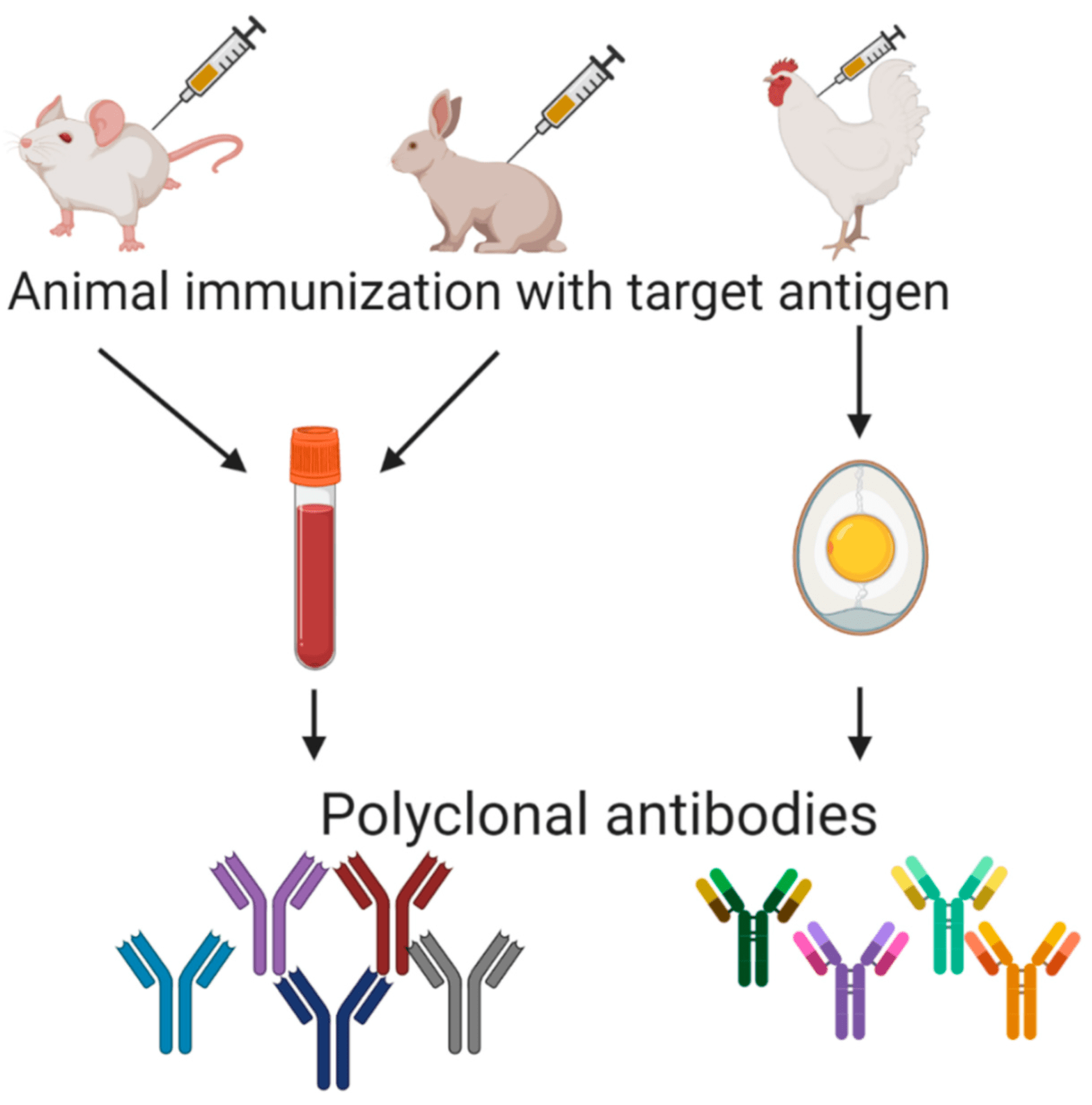
The Basics of Antibody Production
Antibodies (AKA immunoglobulins) are secreted by B cells to nullify the effects of antigens such as viruses and bacteria. The ability of antibodies to bind with antigens has led to their manipulation by scientists and universal use in various medical and research applications.
Antibodies are broadly classified into two primary types, monoclonal and polyclonal, based on their means of production from lymphocytes. Both antibody types play an essential role in diagnostic exams, research assays, and various therapeutics.
However, many people often confuse polyclonal and monoclonal antibodies in terms of quality and reproducibility. In simple terms, these two types of antibodies differ in what they’re used for and how they’re produced.
Production of Polyclonal and Monoclonal Antibodies – Comparison
Polyclonal antibodies (pAbs) are heterogeneous mixtures usually formed by different B cell clones in the body. They can identify and bind to several different epitopes of an antigen.
Polyclonal antibody production starts with injecting an immunogen into a laboratory animal. After injecting the animal with a specific antigen to stimulate a primary immune reaction, it is then given a secondary and a tertiary immunization to enhance the production of large titers of antibodies against the injected antigen.
Following the immunization, these antibodies can be purified to get a solution that doesn’t contain other serum proteins. Alternatively, they can be extracted directly from the serum.
In contrast, Monoclonal antibodies (mAbs) are produced by identical B cells that are products of a single parent cell. It means that monoclonal antibodies only recognize the same antigen epitope, that is, they have a monovalent affinity.
Monoclonal antibodies are produced ex vivo with tissue-culture techniques, vs. the use of live animals in polyclonal antibodies. Polyclonal antibodies are produced from larger animals, like rabbits (most common).
Just like in polyclonal antibody production, the production of monoclonal antibodies starts with injecting the desired antigen into a lab animal (usually a mouse) several times. B-lymphocytes are extracted from the animal’s spleen once it develops an immune response.
The extracted lymphocytes can now be fused with a myeloma cell line to create immortalized B cell-myeloma hybridomas. The hybridomas are then vetted for the ones producing the sought-after mAbs in the highest abundance.
Advantages and Disadvantages of Polyclonal and Monoclonal Antibodies
Asides from the differences in the processes involved in monoclonal and polyclonal antibody production, the two also differ in terms of benefits and disadvantages.
Polyclonal Antibodies
The multi-epitope specificity of polyclonal antibodies is the basis from which we derive their advantages and disadvantages.
Benefits
- Takes about 3 months to produce and its production is inexpensive.
- They can detect low-quantity proteins due to their high sensitivity.
- Recognizes multiple epitopes, making it possess a high overall antibody affinity against antigens.
- The antibody affinity promotes quicker binding with the target antigen.
- Can detect native protein more efficiently.
Disadvantages
- There is a high possibility for cross-reactivity to occur because of the recognition of multiple epitopes. However, affinity-purified antibodies display less cross-reactivity.
- The antibodies vary with each batch production because they are produced in different animals at different times.
Monoclonal Antibodies
Advantages
- There is a high level of homogeneity as production does not vary with batch.
- It is possible to produce large quantities of similar antibodies.
- Has low background noise due to lack of nonspecific binding.
- It has low chances of cross-reactivity, given its high specificity to a single epitope, which means a much lower chance of false positives.
Disadvantages
- Monoclonal antibody production is more expensive.
- Developing the hybridized clone requires more time usually about 6 months.
- It typically requires the implementation of expensive equipment to maximize production.
While antibody developers make polyclonal antibodies from different immune cells, they make monoclonal antibodies from identical immune cells from the same parent cell. Polyclonal antibodies also have an affinity for different epitopes of the same antigen. Contact Green Mountain Antibodies for a full range of services for creating new monoclonal antibodies or producing polyclonal antibodies: 802-865-6230






